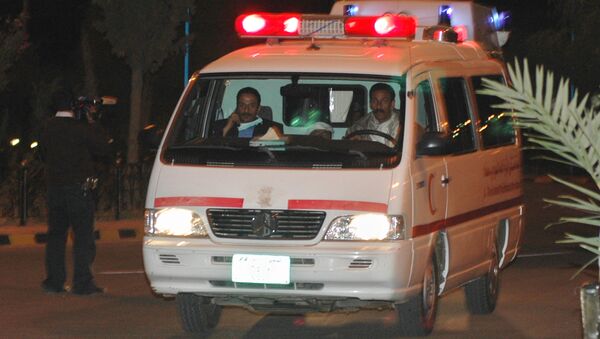Coronavirus cases continue to rise in Yemen, with authorities reporting that two additional people have died of the virus and 19 more people have contracted the disease in the past 24 hours.
So far the war-torn country has registered 28 deaths and more than 160 confirmed cases (though reports allude that the numbers are much higher) but authorities fear that it is only a matter of time until the situation spirals out of control.
Health System in Tatters
The primary reason for this worry is Yemen's poor health system. According to estimates, Yemen has no more than 500 ventilators and 700 ICU beds nationally, whereas there is only one oxygen cylinder available per month for every 2.5 million people.
Half of Yemen's health facilities aren't functioning properly, and about 20 percent of the country's 333 districts have no doctors.
To make things worse, Yemen is also struggling to test all those who suspect they contracted the disease. At the moment, according to reports citing the World Health Organization, the country has only obtained 6500 test kits with the WHO sending an additional supply of 32 thousand others but in a state, where more than 40 thousand people out of the country's total 30 million population could die because of complications caused by COVID-19, that amount will definitely not suffice.
Addressing the situation in Yemen, Yara Khawaja, the spokeswoman for the International Committee of the Red Cross (ICRC), defined the situation as "catastrophic" and explained that the situation could only get worse if the war -- which has claimed the lives of more than 100 thousand people -- continues.
The conflict in the Arab world's poorest nation kicked off in 2014 when a militant group, the Houthis, took over Yemen's northern and central provinces, driving out the internationally-recognised government from the country's capital, Sanaa.
In response, a coalition led by Saudi Arabia, which was against having an allegedly pro-Iranian presence on its southern border -- launched an air campaign in 2015 in a bid to prevent the Houthis from seizing control of Yemen's south.
A Long List of Problems
The five-year war has already led to what a UN report called the worst humanitarian crisis in the world, with 80 percent of the population in need of assistance and protection; 70 percent are considered to be "food insecure".
"[Apart from the fact that] 81 percent of the country live below the poverty line and 70 percent have no access to clear water, the Yemenis are suffering from a long list of other vulnerabilities," said Khawaja.
One such threat is flooding. The end of April has seen some of the most powerful floods in recent years. The reports of international relief organisations have even suggested that more than 100 thousand people across Yemen have been impacted by floodwater, which at times cost them the bare minimum they had.
The heavy rains have also led to the increase of cholera cases in the country. More than 110 thousand cases have been registered so far, and just as in the case of COVID-19, that number is expected to grow too, primarily due to the fact that Yemen doesn't have the means to tackle the rising challenge.
Not Giving Up
However, the Red Cross is not giving up. Working in conflict zones where it tries to "ensure humanitarian protection and assistance for victims of armed conflicts and other situations of violence," the organisation joint efforts with other international organisations to address the multiple problems Yemen is facing, including that of COVID-19, that typically falls under the jurisdiction of the WHO.
"Our regular activities in Yemen happen to align with what's needed in terms of COVID-19 prevention. For example, our water engineers are working to facilitate the Yemenis' access to clean water, our teams distribute various hygiene items, specifically in camps housing internally displaced persons, and in the country's hot spots to make sure diseases stay at bay from those areas," Khawaja explained.
In addition, throughout the years, the ICRC has supported a large number of hospitals and various health care centres and has even set up 19 oxygen stations aimed at helping local medical services tackle the various respiratory diseases, including COVID-19, that have become common in Yemen.
"Unfortunately, it seems that it is only the beginning of COVID-19 in Yemen and it will put additional pressure on the already fragile system and infrastructure that have been weakened by the conflict. To curb the spread of the disease [and prevent a humanitarian disaster], we join efforts with others and spread awareness, passing messages on how to implement precautionary measures that would keep the population safe," Khawaja concluded.




